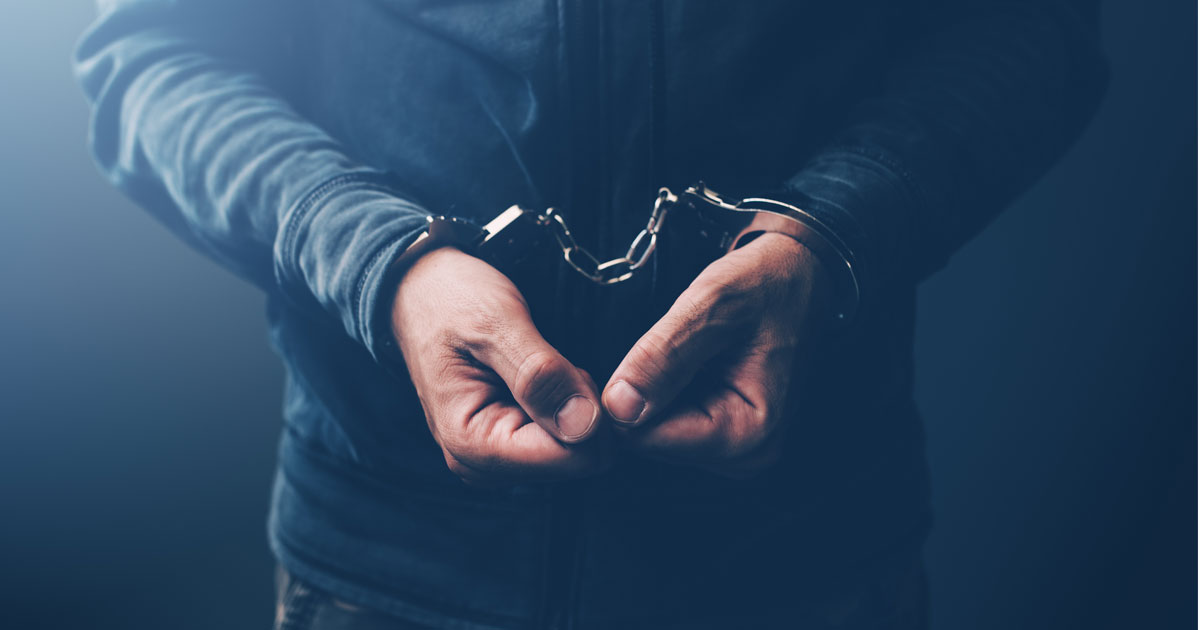What Are Examples of Violent Crimes?

Violent crimes are offenses that involve the use, attempted use, or threat of physical force against another person. In Georgia, a crime can still be classified as violent even if no one is physically harmed, as long as the act involves force, threats, or intimidation. These crimes often place others in immediate danger and may involve weapons.
Violent crimes are typically classified as felonies in Georgia and carry severe penalties. State law imposes mandatory minimum sentences or enhanced penalties when violent acts involve weapons, are committed against vulnerable individuals, or occur as part of gang activity or another felony.
What Is the Difference Between Misdemeanor and Felony Violent Crimes in Georgia?
The difference between a misdemeanor and a felony often lies in the severity of the harm caused, the intent behind the act, and the presence of aggravating factors such as weapon use or repeat offenses.
- Misdemeanor Violent Crimes: These include offenses like simple assault or simple battery, which may not involve serious physical injury or weapons. Penalties can include fines and up to 12 months in jail.
- Felony Violent Crimes: These involve serious bodily harm, deadly weapons, or intent to cause death or permanent injury. Felony convictions in Georgia can result in long prison terms, life imprisonment, or even the death penalty in extreme cases.
A single act may be charged as either a misdemeanor or a felony depending on factors like the accused’s criminal history, the identity of the victim, and the level of force or violence used.
What Types of Crimes Are Considered Violent in Georgia?
Georgia law defines a wide range of offenses as violent crimes, particularly when they involve force or the threat of force. Common violent crimes in the Savannah area include:
- Aggravated Assault or Aggravated Battery: Includes the use of a deadly weapon or intent to cause serious bodily harm, disfigurement, or disability.
- Armed Robbery: Involves taking property using a weapon or threatening the use of one. This is a serious felony with mandatory prison time.
- Cruelty to Children or the Elderly: Includes physical, emotional, or psychological abuse or neglect. These offenses carry heightened penalties due to the vulnerability of the victims.
- Home Invasion: Occurs when someone enters a home with a weapon and intends to commit a violent felony inside.
- Kidnapping: The unlawful removal or confinement of someone by force, threat, or deception. Even a short movement without consent may meet the legal definition.
- Manslaughter: Includes both voluntary (heat of passion) and involuntary (recklessness or criminal negligence) killings.
- Murder: The intentional killing of another person with malice, or during the commission of another felony. Murder in Georgia can result in life in prison or the death penalty.
- Rape: Non-consensual sexual penetration. Georgia imposes strict penalties, including lengthy prison terms and lifetime sex offender registration.
- Sexual Assault: Often applies to non-consensual acts committed by individuals in positions of authority, such as teachers, law enforcement, or healthcare providers.
Convictions for violent crimes in Georgia can lead to lengthy prison sentences, hefty fines, lifetime probation or parole, and permanent loss of civil rights, including the right to vote or own firearms.
What Are Legal Defenses Against Violent Criminal Charges?
If you’re charged with a violent crime in Georgia, a strong legal defense can be the difference between conviction and acquittal. Common legal defenses include:
- Self-Defense: Georgia law permits the use of force—even deadly force—when you reasonably believe it is necessary to prevent death or serious harm.
- Alibi: You were somewhere else when the crime occurred, and evidence or witnesses can confirm it.
- Defense of Others: You acted to protect another person from immediate harm.
- False Accusation: The alleged victim may have a motive to lie or misidentify you.
- Lack of Intent: The prosecution must prove that you intended to cause harm; if this cannot be shown, the charges may not hold.
- Mistaken Identity: Witnesses or law enforcement may have incorrectly identified you.
- Constitutional Violations: Any evidence obtained in violation of your constitutional rights—such as unlawful searches, coerced confessions, or lack of Miranda warnings—may be excluded from trial.
- Insufficient Evidence: The prosecution must prove guilt beyond a reasonable doubt. Weak, inconsistent, or circumstantial evidence can result in a dismissal or acquittal.
A seasoned criminal defense attorney in Savannah can review your case in detail and advise you on the best strategy based on the facts and applicable Georgia law.
What Should I Do If I Am Charged With a Violent Crime in Savannah?
If you’re arrested or under investigation for a violent offense in Savannah, taking immediate action can help protect your rights and your future. Here’s what you should do:
- Do not speak to the police without a lawyer present.
- Avoid posting about your case on social media.
- Document everything you remember about the incident and arrest.
- Preserve any evidence that may support your defense.
- Follow all bond conditions and court requirements.
- Contact an experienced criminal defense lawyer right away.
An early and aggressive legal strategy is critical in violent crime cases. The decisions you make now can have long-lasting effects.
Savannah Criminal Defense Lawyers at Kicklighter Law Fight Violent Crime Charges With Experience and Precision
Our Savannah criminal defense lawyers at Kicklighter Law are ready to investigate your case, challenge unlawfully obtained evidence, and build a strategic, tailored defense. Call 912-754-6003 or contact us online to schedule a confidential consultation. Located in Springfield, Georgia, we serve clients in Savannah, Effingham County, and the surrounding areas.
